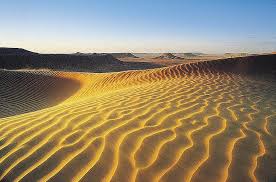One of my favorite poems by Percy Bysshe Shelly is Ozymandias. It is a concise and thoughtful poem that can be easily read in under a minute, but can be thought about for much, much longer. I was flipping through a 'collection of poems' book that I own and came across this poem yet again. I have read it many times, but each time I enjoy it just as much as I did previously. So, here it is for your enjoyment as well, along with some thoughts that I have been kicking around inside my mind.
OZMANDIAS
I met a traveller from an antique land
Who said: Two vast and trunkless legs of stone
Stand in the desert...Near them, on the sand,
Half sunk, a shattered visage lies, whose frown,
And wrinkled lip, and sneer of cold command,
Tell that its sculptor well those passions read
Which yet survive, stamped on these lifeless things,
The hand that mocked them, and the heart that fed:
And on the pedestal these words appear:
"My name is Ozymandias, king of kings:
Look on my works, ye Mighty, and despair!"
Nothing beside remains. Round the decay
Of that colossal wreck, boundless and bare
The lone and level sands stretch far away.
The simply understood message of this poem is that time is master to all humans, and it will have the final victory in the end. Even the most ambitious and successful human will succumb to the unrelenting march of time that will eventual consume everything on this earth, man made or natural. The ruin lies in the middle of a desert, no place to build a statue is it? Which means that the original building site was probably a suitable place to live and thrive from a human perspective, but now it is a barren and an uninviting place that is only worth travelling to because there is a colossal monument there.
It begs the question: what do we humans, as individuals, do with this knowledge? Modern humans face this existential strain to a greater degree than did our more decidedly religious ancestors, who intertwined belief of the afterlife so tightly with their daily realities, as they attempted to explain the complex and mysterious world around them. We bare the burden of knowledge of an expansive universe, of its great stretches of time, and so much more that humans of generations past could not even imagine. How do we cope with this "curious comedy", as put by Friedrich Nietzsche: "Man may have grown out of the ape and will return to the ape again, without anybody taking an interest in the ending of this curious comedy." So, is there meaning to life? Is there a point?
I say yes. There is another part of the poem for me that I didn't realize until this last reading. There is another side to the despairing ruin of that fallen human leader, who died so long ago -- that it happened in the first place. Some man, a by-product of nature itself, elevated himself to a level unobtainable to any animal that has come before him. Engraving his image on stone, and immortalizing his thoughts onto that same stone, so that future humans could witness his image and read his words. Even the nameless, faceless sculptor of that monument has projected himself farther into time than any animal could hope to do outside of accidentally becoming a fossil.
We as individuals don't need to become powerful leaders that try to immortalize ourselves by fashioning our image onto rocks or by building our reputations up to be passed down through the ages as legends. We simply need to realize the great gift that nature has bestowed us: the gift of awareness. With this awareness comes choices, and with those choices comes freedom. This freedom is both exhilarating and terrifying, but uniquely human nonetheless. If you want to become a world leader that is immortalized and worshiped, you can do that. If you want to lead a quiet and thoughtful life, you can do that too.
Don't dwell on the unavoidable, fret about the unexplainable or fear the unknowable-- revel in them instead. They have been the drivers of human thought and ingenuity for generations, and they remain that for us still today. The absence of innate meaning does not make the world meaningless, it makes it meaningful for us in a more personal way than it could ever be if we were simply given it from an outside source. Enjoy the journey through the desert, my friends, I know I intend to.
